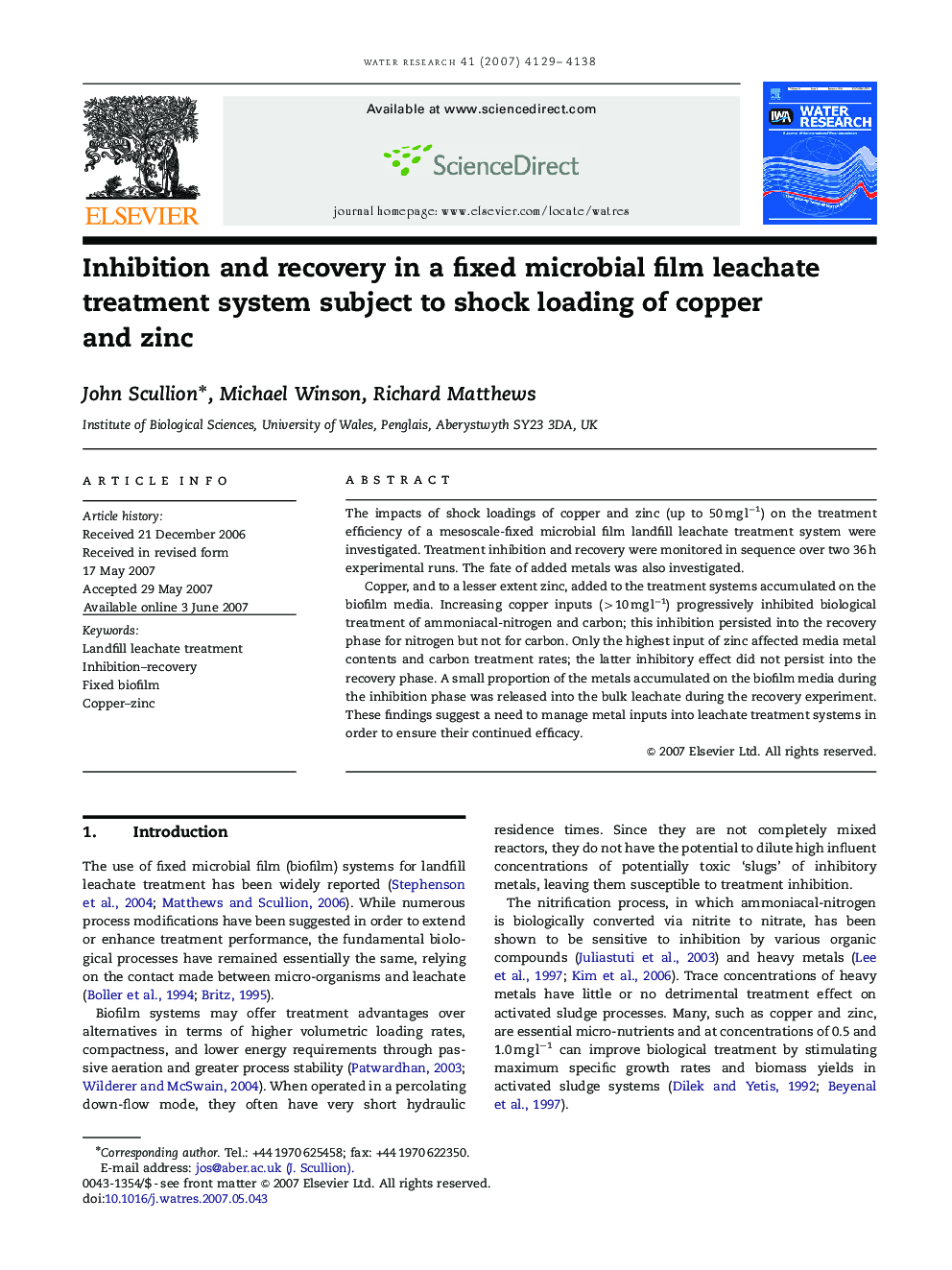| Article ID | Journal | Published Year | Pages | File Type |
|---|---|---|---|---|
| 4485905 | Water Research | 2007 | 10 Pages |
The impacts of shock loadings of copper and zinc (up to 50 mg l−1) on the treatment efficiency of a mesoscale-fixed microbial film landfill leachate treatment system were investigated. Treatment inhibition and recovery were monitored in sequence over two 36 h experimental runs. The fate of added metals was also investigated.Copper, and to a lesser extent zinc, added to the treatment systems accumulated on the biofilm media. Increasing copper inputs (>10 mg l−1) progressively inhibited biological treatment of ammoniacal-nitrogen and carbon; this inhibition persisted into the recovery phase for nitrogen but not for carbon. Only the highest input of zinc affected media metal contents and carbon treatment rates; the latter inhibitory effect did not persist into the recovery phase. A small proportion of the metals accumulated on the biofilm media during the inhibition phase was released into the bulk leachate during the recovery experiment. These findings suggest a need to manage metal inputs into leachate treatment systems in order to ensure their continued efficacy.
